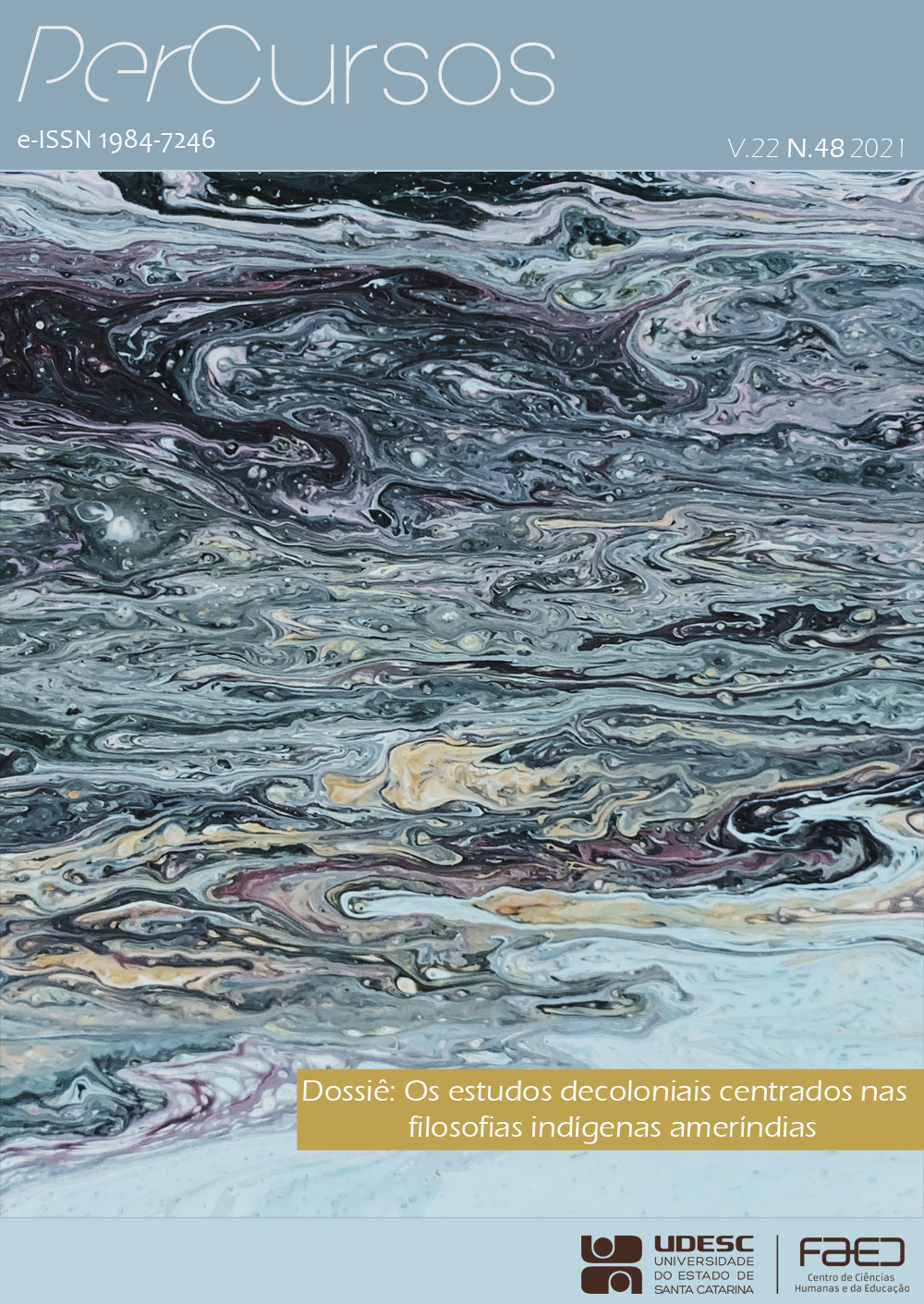Savant narratives building the territory of the traditional people in the semi-arid region from the alagoas state
DOI:
https://doi.org/10.5965/1984724622482021128Keywords:
Territory, Memory, Native indians in the Northeast region from Brazil, GeographyAbstract
The current discussion has as mandatory reference Walter Benjamin as the Narrator and the oral narratives that collaborate in constructing Xukuru-Kariri indigenous people's territory in Palmeira dos Índios (AL). Benjamin seeks the value in the history that orally lives to rescue the alterity's importance in the ethics constitution process, seeking the real place that the human being must occupy in a historical period characterized by the growing valorization of relations founded on the alienation and reification of individuals. The exercise of cultivating the memory among the traditional people aggregates mainly the function of educating, besides agglutinating information, experiences, past times which when rummaged gave origin to the recuperation of the old territory (once occupied), also used in the exercises from everyday tasks, from funeral rituals, from runaways from invaders, from drought, from hunger. Talking in a historical narrative and memory of the forgotten is the invocation of a past, which one cannot retake in its totality; it is to appeal to the meetup face to face with the other, which constitutes itself as the eminently distinct being of the Self. It is the resurgence of the historical narrative and the forgotten is memory, which passes necessarily by hearing the past presented by the other. Throughout this text, we will present this Other's face, forgotten in the context of a society that values the present time and the cartesian Self solely.
Downloads
References
ARIÉS, Philippe. A história existencial. O tempo da história. Rio de Janeiro: Francisco Alves, 1989.
BARTH, Fredrik. Grupos étnicos e suas fronteiras. São Paulo: Ed Unesp, 2011.
BENJAMIM, Walter. Experiência e pobreza. In: BENJAMIM, Walter. Obras escolhidas. São Paulo: Brasiliense, 1985. v. 1. p.114-119.
BENJAMIM, Walter. Magia e técnica, arte e política: ensaios sobre literatura e história da cultura. São Paulo: Brasiliense, 1996.
BENJAMIM, Walter. O narrador de Lescov: textos escolhidos. São Paulo: abril Cultural, 1983.
BOSI, Ecléa. Memória e sociedade. São Paulo: Companhia das Letras, 2001.
BRASIL. Decreto 6.040 de 7 de fevereiro de 2007. Institui a política nacional de desenvolvimento sustentável dos povos e comunidades tradicionais. Brasília: PNPCT, 2007. Disponível em: http://www.planalto.gov.br/ccivil_03/_ato2007-2010/2007/decreto/d6040.htm. Acesso em: 04 fev. 2021.
CARDOSO, Irene. A narrativa silenciada. In: CARDOSO, Irene; SILVEIRA, Paulo. (org.). Utopia e mal-estar na cultura: perspectivas psicanalistas. São Paulo: Hucitec: Programa de Pós-Graduação em Sociologia da USP, 1997.
CARDOSO, Irene. Para uma crítica do presente. São Paulo: Ed. 34, 2001.
FUNAI. Processo de nº015/89. 3ª Suer. Recife: [s.n.], 1989. p. 46-50.
REESINK, Edwin Boudewijn. Índio ou caboclo: notas sobre a identidade étnica dos índios do Nordeste. Universitas, Salvador, n. 32, p. 121-137, 1983.
ROUANET, Sergio Paulo. Édipo e o anjo: itinerários freudianos em Walter Benjamim. Rio de Janeiro: Tempo Brasileiro, 1981.
SARLO, Beatriz. Paisagens imaginárias: intelectuais, arte e meios de comunicação. São Paulo: Edusp, 1997.
SILVA, Amanda Maria Antero da. Xukuru-Kariri: protagonismo indígena em Palmeira dos Índios/AL (1979-2013). 2019. Dissertação (Mestrado em História) – Centro de Humanidades, Universidade Federal de Campina Grande, Campina Grande, 2019.
SILVA, Maria Ester Ferreira da. A desterritorialização do povo Xucuru-Kariri e o processo de demarcação de terras indígenas no município de Palmeiras dos Índios. 2004. Dissertação (Mestrado em Geografia) – Programa de Pós-Graduação em Geografia, Universidade Federal de Sergipe, Aracaju, 2004.
SILVA, Maria Ester Ferreira da. Território, poder e as múltiplas territorialidades nas terras indígenas e de pretos: narrativa e memória como mediação na construção do território dos povos tradicionais. 2010. Tese (Doutorado em Geografia) – Programa de Pós-Graduação em Geografia, Universidade Federal de Sergipe, Aracaju, 2010. Disponível em: https://ri.ufs.br/jspui/handle/riufs/5461. Acesso em: 20/10/2020.
TODOROV, Tzetan. O homem desenraizado. Rio de Janeiro: Ed. Record, 1999.
VIEGAS, Maria Ester Ferreira da Silva. Terra Indígena Xukuru-Kariri: avanços e recuos. Diversitas Journal, Santana do Ipanema, v. 4, n. 3, p. 848-867, 2019. DOI: https://doi.org/10.17648/diversitas-journal-v4i3.909
XUKURU, Maninha. Liderança Indígena Xukuru-Kariri (in memoriam). Fala na abertura da I Semana de Geo-História Indígena da Funesa-ESPI. Palmeira dos Índios: Fundação Estadual de Ensino Superior de Palmeira dos Índios, 2004.
Downloads
Published
How to Cite
Issue
Section
License
Copyright (c) 2021 PerCursos

This work is licensed under a Creative Commons Attribution-NonCommercial-NoDerivatives 4.0 International License.


